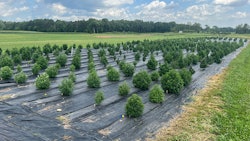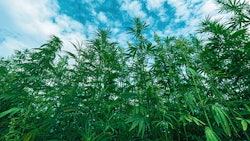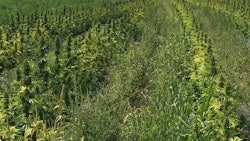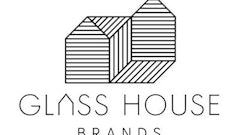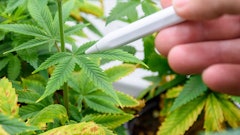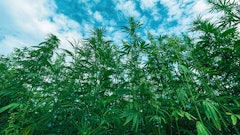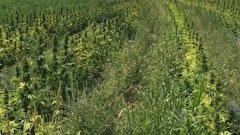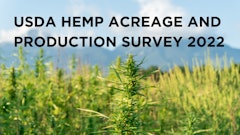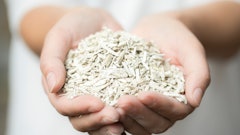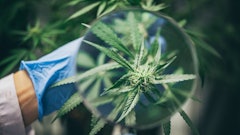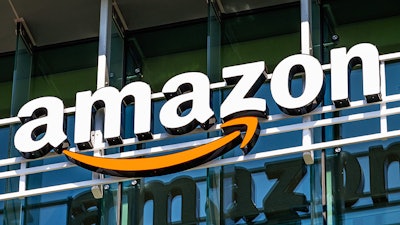
Violations of U.S. Food and Drug Administration (FDA) and Drug Enforcement Administration (DEA) regulations, and of Amazon’s own policy, as well as blatant mislabeling of product contents are among the issues raised by a new study of products sold on Amazon and other major retailers.
Tests of 56 “hemp” products purchased on Amazon showed that 43% contained “no hemp of any kind,” according to a new report by CBD Oracle, a consumer research company that works to improve the safety and transparency of cannabis products. “This means there is no hemp seed oil, no hemp cannabinoids or anything that could possibly justify saying these products were ‘hemp,’” CBD Oracle’s “Amazon's Hemp Market: An Independent Analysis” report stated.
The tests also found that 11% of the products contained THC and three had “very high quantities of delta-8 THC,” which is banned in many states and declared as a Schedule I drug under the Controlled Substances Act, according to the DEA. The products with the highest THC content contained 641 milligrams, 2,507 milligrams and 3,028 milligrams of THC, the vast majority of which was delta-8 THC, per the report.
RELATED: Hemp-Derived Delta-9 THC: What’s Next
“The most potent gummy contained 76 mg of THC per piece, well above what would be acceptable in a state-legal marijuana edible (even after accounting for the reduced potency of delta-8 relative to delta-9),” the report stated.
CBD was also a problem area identified by CBD Oracle’s product testing, as “30% contained CBD and were in violation of both Amazon policy and the federal Food, Drug and Cosmetic Act (FD&C Act),” per the report. Amazon’s policy prohibits the sale of CBD.
Dosage was a major problem area, as the study found that nearly all products (96%) either provided no dosage information or gave inaccurate dosage information. “On average, the products in the study contained just 25% of the promised dosage in terms of cannabinoids. While the ‘dose’ specified usually didn’t say what exactly it measured, customers would likely assume this referred to cannabinoids in the context of a hemp gummy,” according to the report.
Nearly all products (95%) provided no lab certificate of analysis (COA) of any kind.
Unapproved Medical Claims
Medical claims, whether claims that CBD can treat COVID-19 or products simply “labeled as any sort of cure or treatment for an ailment,” are “technically illegal, as CBD products are subject to FDA regulations,” as Cannabis Business Times reported, and the FDA has, over the past several years, issued warning letters to companies selling products that violate the Federal Food, Drug, and Cosmetic (FD&C) Act. Despite the illegality of medical claims, more than half of the products (52%) in the study made an unapproved medical claim about the product.
“In particular, products made claims about pain relief, anxiety relief, sleep promotion and even the common cold,” according to the report. “While many products made medical claims verbally, it was more common for product pages to include an image of a body part (for example, a back or knee) with red patches or other signifiers of what the FDA calls ‘abnormal tissue’ and to claim or imply the product provides relief from this.”
Pet products were subject to the “most blatant medical claims.”
CBD Oracle’s study evaluated the products based on “the FDA’s guidance on what constitutes a medical claim.”
About the Study
To conduct the research, CBD Oracle purchased 56 “popular hemp products”—45 gummies, eight tinctures, two topical creams, and one pack of mints—on Amazon in December 2023 and January 2024.
While the products were purchased on Amazon, “some of the exact products are also sold on Walmart and eBay,” Houman Shahi, editorial director for CBD Oracle, told Cannabis Business Times.
The products purchased by CBD Oracle were sent, unopened, to Infinite Chemical and Analysis Labs (InfiniteCAL) for cannabinoid-content and potency testing, specifically for delta-9 THC, detla-8 THC, CBD, THCa, CBDa, CBG, CBGA, CBN, THCV, CBDV and CBC, “using ultra high performance liquid chromatography with a diode array detector (UHPLC-DAD), after being homogenized and mixed with an appropriate solvent,” according to the report’s methodology. “Products which were confirmed by standard potency testing to contain no cannabinoids were sent for further testing by GC-MS/MS (gas chromatography, tandem mass spectrometry).”
Five products were also tested for pesticides and mycotoxins, heavy metals, residual solvents, microbials and foreign materials; the tests found no safety issues with those products, according to the report.
Details of the InfiniteCAL’s testing methodology are available here.
View CBD Oracle’s full report here.











